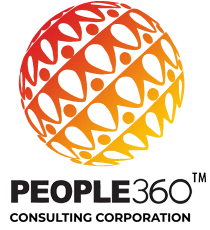The Breast Cancer Awareness Month, marked in countries across the world every October, helps to increase attention and support for the awareness, early detection and treatment as well as palliative care of this disease.
There are about 1.38 million new cases and 458 000 deaths from breast cancer each year (IARC Globocan, 2008). Breast cancer is by far the most common cancer in women worldwide, both in the developed and developing countries. In low- and middle-income countries the incidence has been rising up steadily in the last years due to increase in life expectancy, increase urbanization and adoption of western lifestyles.
Currently there is not sufficient knowledge on the causes of breast cancer, therefore, early detection of the disease remains the cornerstone of breast cancer control. When breast cancer is detected early, and if adequate diagnosis and treatment are available, there is a good chance that breast cancer can be cured. If detected late, however, curative treatment is often no longer an option. In such cases, palliative care to relief the suffering of patients and their families is needed.
The majority of deaths (269 000) occur in low- and middle-income countries, where most women with breast cancer are diagnosed in late stages due mainly to lack of awareness on early detection and barriers to health services.
WHO promotes comprehensive breast cancer control programmes as part of national cancer control plans. The recommended early detection strategies for low- and middle-income countries are awareness of early signs and symptoms and screening by clinical breast examination in demonstration areas. Mammography screening is very costly and is feasible only in countries with good health infrastructure that can afford a long-term programme.
10 TIPS FOR BREAST CANCER PREVENTION
- Avoid becoming overweight. Obesity raises the risk of breast cancer after menopause, the time of life when breast cancer most often occurs. Avoid gaining weight over time, and try to maintain a body-mass index under 25 (calculators can be found online).
- Eat healthy to avoid tipping the scale. Embrace a diet high in vegetables and fruit and low in sugared drinks, refined carbohydrates and fatty foods. Eat lean protein such as fish or chicken breast and eat red meat in moderation, if at all. Eat whole grains. Choose vegetable oils over animal fats.
- Keep physically active. Research suggests that increased physical activity, even when begun later in life, reduces overall breast-cancer risk by about 10 percent to 30 percent. All it takes is moderate exercise like a 30-minute walk five days a week to get this protective effect.
- Drink little or no alcohol. Alcohol use is associated with an increased risk of breast cancer. Women should limit intake to no more than one drink per day, regardless of the type of alcohol.
- Avoid hormone replacement therapy. Menopausal hormone therapy increases risk for breast cancer. If you must take hormones to manage menopausal symptoms, avoid those that contain progesterone and limit their use to less than three years. "Bioidentical hormones" and hormonal creams and gels are no safer than prescription hormones and should also be avoided.
- Consider taking an estrogen-blocking drug. Women with a family history of breast cancer or who are over age 60 should talk to their doctor about the pros and cons of estrogen-blocking drugs such as tamoxifen and raloxifene.
- Don't smoke. Research suggests that long-term smoking is associated with increased risk of breast cancer in some women. Breast-feed your babies for as long as possible. Women who breast-feed their babies for at least a year in total have a reduced risk of developing breast cancer later.
- Get fit and support breast cancer research at the same time. Regular physical activity is associated with a reduced risk of breast cancer.
Source: http://www.who.int/cancer/events/breast_cancer_month/en/


